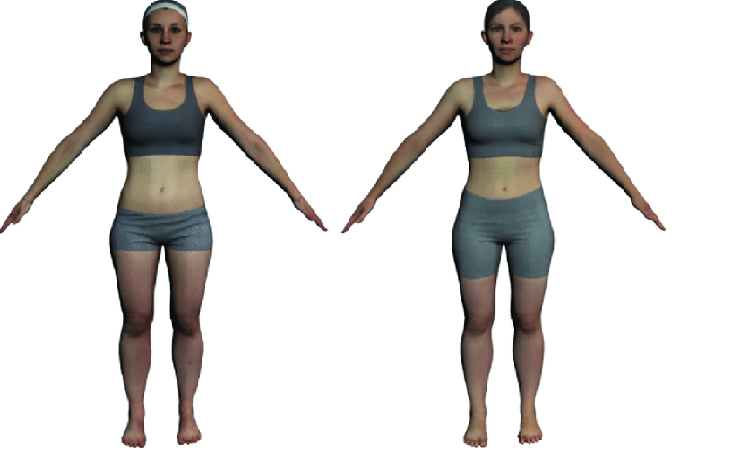In addition to protein, Creatine has been one of the most talked-about supplements in sports nutrition for decades. However, many experienced gymnasts are reluctant to incorporate this into their daily routine.
One big reason to doubt: There is a concern that Creatinine makes you gain weight, and the point is, there is more to this story than meets the eye. Here’s what you need to know about Creatinine and weight gain – and why supplements offer more than just quantity.
What is Creatine, however?
Produced in the liver and pancreas (and found in animal proteins such as meat and fish), Creatine is a molecule that our muscle cells use to make a chemical called ATP.
Jacob Wilson, PhD, CSCS, executive director of the Institute of Applied and Performance Sciences, says that when our muscles need a contract, they break down the ATP to the ADP explains and are members of the Vitamin Shoppe Wellness Council. Creatine helps convert ADP to ATP, essentially restoring our muscle energy stores.
Although our bodies cannot indirectly use Creatinine to produce ATP (this eventually leads to sugar or oxygen and breaks down fat for fuel), short shocks of molecular movement (e.g. boxes or heavy codes) Are essential for our ability to be silent). , Says Tony Castello, Nutrition Consultant. (Creatine is usually valid for the first 10 to 15 seconds of each workout.)
Does taking creatine cause weight gain?
Now, the answer to everyone is asking about Creatinine: Yes, it technically makes you gain weight. Don’t worry now.
“Creatine brings water to the muscles, so you can see an increase in volume,” says Castillo. “However, this increase is not from fat.”
While most creatinine users gain a few pounds while taking supplements, how much weight you earn depends on how much muscle you have. (The more muscle, the more Creatinine and the more water you can store.)
Why is creatine weight gain good?
First of all, because Creatine weighs so little in water, it will not affect your appearance in the photo. “If anything, your muscles will look a little bigger,” Wilson said. “There’s nothing in it!”
In addition, excess water “can help improve hydration and has been shown to improve exercise performance in the heat,” he adds. “And, of course, good hydration and muscle tone and strength can help you build muscle over time,” says Wilson. So if you want to get stronger or show more muscle, Creatinine can help you be more effective there.
Use Creatine properly.
Before looking for the best creatine powder or supplement, consider that Creatine can be found naturally in certain foods, such as red meat and seafood. One pound of meat or salmon can give you 1 to 2 grams of Creatine, and you can also get it in small amounts in tuna and milk.
But if you want to add creatinine powder to your diet, your body gets more from what you eat; you can get Creatinine in different ways. These include capsules, chewable tablets, powders, energy drinks and bars.
Creatine monohydrate is the most prevalent form of Creatine. While there are other types of Creatine, such as creatine hydrochloride, liquid Creatine, and creatine ethyl ester, the best creatine powder widely considered is creatine monohydrate. It is widely used, considered the safest, and can be found in various products and powders in stores and online.
According to MedlinePlus, taking the right amount of Creatinine is essential and considered safe. Twenty-five grams of Creatinine per day for two weeks is deemed safe for adults, and Creatinine should be safe for 18 months at low doses and less than 10 grams daily for five years.
Although the Cleveland Clinic reports that most athletes take creatinine supplements, the United States does not regulate supplementation through the Food and Drug Administration (FDA). The long-term effects of Creatinine are unknown. Before taking Creatinine, it may be helpful to discuss a supplement plan with your doctor.
The benefits of Creatinine for your body.
Creatine is used as a supplement to promote athletic performance and recovery. But it is also an amino acid found naturally in your body – especially in the muscles and brain – and is produced by the liver. Without supplements, your body naturally uses its Creatinine to strengthen your muscles. It may be helpful to take it as a supplement during intense lifting or exercise and provide more Creatine to your muscles.
While the Mayo Clinic says that taking creatinine supplements can help improve strength and fitness during exercise, research that supports its effects on other parts of the body or specific diseases is not detailed. It is thought to cause weight gain, mainly due to the weight of creatine water. However, Creatinine is considered safe and potentially beneficial for athletes who need to increase their strength.
Muscle Strength: A study published in the November 2018 issue of Nutrition found that athletes who did not take Creatine increased muscle strength with intense training and reduced muscle loss. Creatinine supplementation is added.
Another February 2017 study, published in the Journal of the International Association of Sports Nutrition, found similar results in analyzing the effects of short-term low-dose creatinine use on young football players.
Muscle strength may be due to increased high-energy Creatinine in the form of phospho-creatinine, which produces adenosine triphosphate, or ATP.
During strenuous exercise, your muscles use ATP for energy, and more energy allows you to lift more or move faster, which starts the period of your muscle development. That’s why Creatine is a popular supplement for athletes in various sports, including running, cycling, basketball, volleyball, and weightlifting.
Encouraging Recovery: In addition to providing extra energy for your muscles to work harder, Creatinine has been shown to help your body recover from exercise or injury, according to a June 2017 study. Eating Creatine before or after a workout can help your muscles regenerate after much work.







